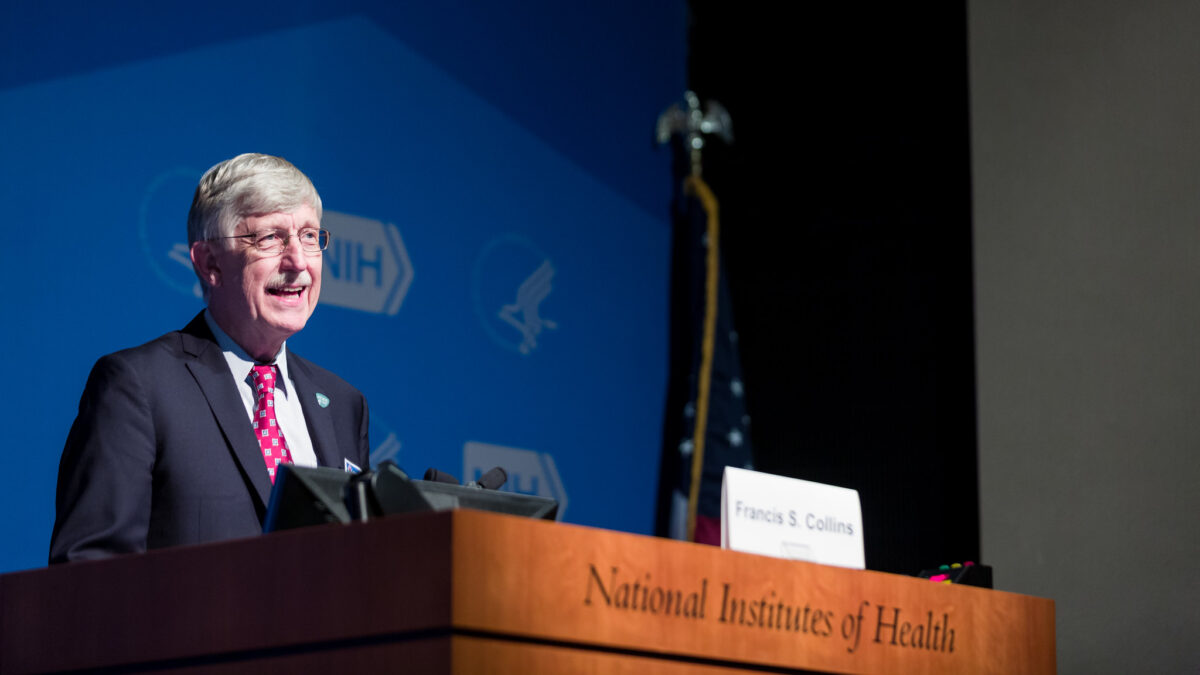Recently released emails show National Institutes of Health (NIH) Director Francis Collins agreeing to a Zoom meeting with University of Pittsburgh (Pitt) administrators apparently to downplay allegations about the university’s experiments on aborted babies.
Last fall, revelations about the University of Pittsburgh’s fetal tissue research sparked outrage that the institution may have received organs that were extracted from live fetuses, or that tissue may have come from abortions that violated federal anti-trafficking law. Now, emails obtained by Judicial Watch indicate Biden’s NIH may have been working behind the scenes in collusion with Pitt to dampen the news and the pushback that followed it.
Emails Indicate Collusion to Snuff Out Criticism
In an Oct. 16 email, one of Pitt’s vice chancellors suggested to Collins that a coordinated response was necessary.
“Hi Francis,” began the email from Jeremy Berg, Pitt’s associate senior vice chancellor for science strategy and planning. “I write regarding ongoing efforts to undermine important science using fetal tissue.”
Berg goes on to portray the controversy as “an organized attempt to delegitimize science based on fetal tissue rather than to identify misbehavior (although, of course, any misbehavior does create opportunities for outrage). In light of this, we feel that the scientific community would benefit if more institutions could stand together to take some of the power out of the one-at-a-time strategy that appears to be operating.”
“Our Chancellor Pat Gallagher, former Director of NIST and your Senate confirmation colleague would like the opportunity to discuss this with you or other appropriate individuals at NIH via whatever venue would be preferred (phone, Zoom, in Bethesda),” Berg continued.
On the same day, NIH Deputy Director of Extramural Research Mike Lauer confirmed a Zoom meeting scheduled for Oct. 20. “We have a Zoom meeting scheduled with the Pitt VPR and team this Wednesday, October 20, at 9:30 AM,” he wrote.
Another email from NIH official Lawrence Tabak on Oct. 17 further confirmed the meeting. “Mike [likely Mike Lauer] indicated that it is arranged (dropping FC to bcc line),” said Tabak. “FC” appears to be a reference to Collins’ initials.
The Health and Human Services Department and Berg did not respond to my requests for comment. But U.S. Sen. Steve Daines, R-Mont., and David Daleiden, founder of the Center for Medical Progress, both expressed concern about the communications.
“It’s disturbing that the Biden administration is doing everything it can to promote, protect and bankroll the abortion industry,” Daines, who chairs the Senate Pro-Life Caucus, said in a statement to me. “Pitt’s ghoulish and potentially illegal research using the remains of unborn children must be thoroughly investigated by an unbiased entity.”
NIH Already Blew Off Concerns About Pitt’s Experiments
Daines is one of many senators who have been pressing Pitt for answers after Daleiden and Judicial Watch obtained Pitt’s application requesting funding for fetal tissue research. After its release, doctors told Fox News the application’s wording and Pitt’s own statements indicated the university obtained organs from live fetuses. Nearly 100 members of Congress also sent a letter suggesting Pitt’s language indicated it may have violated federal law prohibiting fetal tissue trafficking.
NIH responded in February without providing the requested information. It instead deferred to a highly criticized investigation that Pitt commissioned from the law firm Hyman, Phelps, and McNamara (HPM).
The agency’s February letter also indicated that it had many more communications with the university than what was revealed by Judicial Watch’s request. While that request focused on top NIH officials, NIH’s response to Congress noted that its Office of Extramural Research had “been in discussions with the University of Pittsburgh to determine the veracity of these allegations.” Judicial Watch’s request also returned an email from NIH Acting Director of the Office of Communications and Public Liaison Renate Myles, who said on Oct. 17: “Some things waiting for OER meeting to be answered.”
Daleiden told me on Wednesday: “The new documents released by Judicial Watch demonstrate exactly what NIH revealed to senators in February—NIH is colluding with the University of Pittsburgh and the abortion industrial complex to cover up the criminal trafficking and harvesting of aborted human fetuses for barbaric experiments.”
“Pitt’s dubious assurances that its experiments on human fetuses are an ethical and transparent enterprise ring hollow when it works in secret with powerful government agencies to silence questions,” he added. “Congress must demand the release of all documents concerning Pitt’s experiments with aborted human fetuses now and ensure those who sell human infants for experiments are held accountable under the law.”
What Is Pitt Hiding?
Pitt has denied all wrongdoing and maintains that it doesn’t participate in any medical procedures. However, its own statements have indicated it had at least some knowledge of the procedures used to obtain the tissue.
For example, Pitt’s application specified that “ischemia time,” which refers to the amount of time after blood flow is cut off from a part of the body, is “minimized” for its specimens. Researchers generally benefit from fresher tissue as it provides more suitable specimens for experiments.
While Pitt also maintains that it is a separate entity from the University of Pittsburgh Medical Center (UPMC), critics have raised a number of questions about potential conflicts of interest. Pitt has not only shared staff with its medical center and Planned Parenthood, but also housed multiple tissue bank locations within UPMC facilities.
Pitt also told the state legislature last year that its tissue bank, known as the Pitt Biospecimen Core, “receives all fetal tissues from UPMC Magee-Womens Hospital.” That letter came in response to controversy surrounding a study involving infants’ scalps grafted onto rodents.









